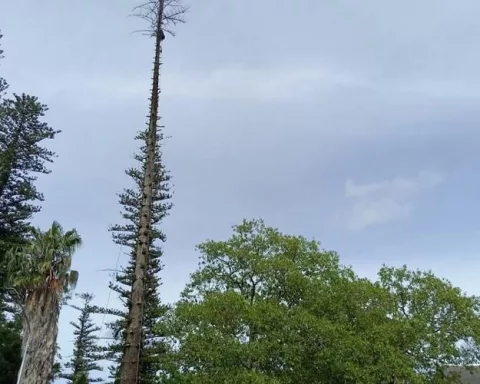In what can only be described as a significant milestone in the fight against poaching in South Africa, a 32-year sentence was imposed on Freedom Ndlovu for his involvement in a series of poaching-related offenses. This decision reinforces the gravity of wildlife crimes and the need for stricter measures to combat them. Lieutenant General Semakaleng Daphney Manamela, the Provincial Commissioner of the South African Police Service (SAPS) in Mpumalanga, expressed hope that the harsh penalty would serve as a warning to other would-be offenders.
The Poaching Incident
In November 2016, field rangers from Kruger National Park were on patrol in the Stolznek Section when they noticed three men in the bushes. The men fled upon noticing the rangers, leading to a search with the aid of a helicopter and a tracker dog. One of the poachers was soon captured, followed by the arrest of his two accomplices, Alsony Baloyi (33) and Fanual Ngobe (30).
An arsenal of poaching tools was discovered in the possession of the apprehended men. These included a 375 hunting rifle with a silencer, additional ammunition, six rhino horns concealed in backpacks, and an axe. Three rhino carcasses were found nearby, along with six spent cartridges.
The Legal Process
The Skukuza Police arrested the three suspects. While Ngobe was initially granted bail, he failed to return to court, resulting in a warrant being issued for his arrest. Baloyi was sentenced to 23 years in prison in June 2021. Ndlovu’s sentencing came two years later, involving multiple charges that included trespassing in the National Park, hunting rhinos, and possessing unlicensed firearms and ammunition. Ndlovu was also declared unfit to possess a firearm.
Collaborative Efforts
The decisive action taken in this case is a testament to the collaborative efforts of SANParks officials, the police’s investigation team, the prosecution, and the judiciary in tackling poaching. Lieutenant General Manamela commended their coordinated work in addressing this serious offense.
Continued Challenges
Despite this victory, the battle against poaching in South Africa and surrounding regions is far from over. Rhino poaching remains a significant issue, driven by the high demand for rhino horns in the global black market. These horns are often used in traditional Asian medicine, despite having no scientifically proven health benefits.
Combating Poaching
Conservation organizations, governments, and law enforcement agencies have implemented various strategies to address the poaching crisis. These include the use of technology such as drones and satellite imagery to monitor wildlife populations. Furthermore, global awareness campaigns have sought to educate the public on the devastating impact of poaching on ecosystems and the urgent need for collective action.
As the international community recognizes the severity of wildlife crimes, it is essential to support and learn from the efforts of the South African authorities. By imposing stricter penalties and fostering a zero-tolerance culture towards poaching, endangered species might yet stand a chance in their fight for survival.












